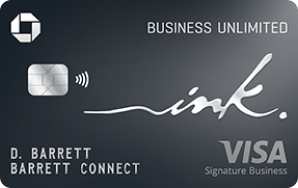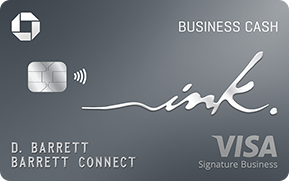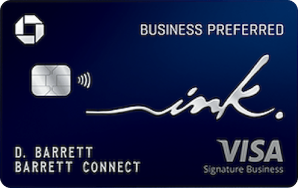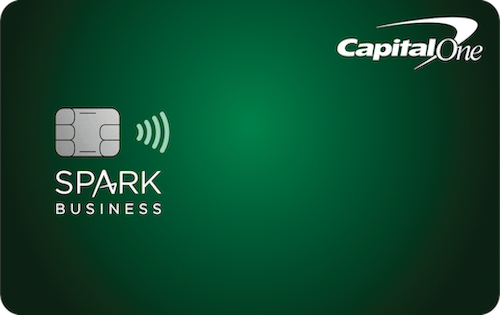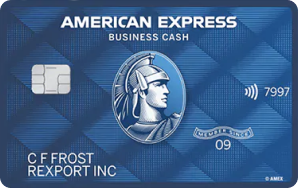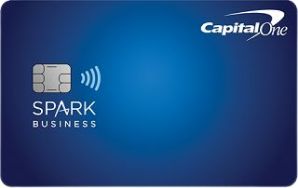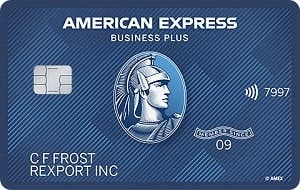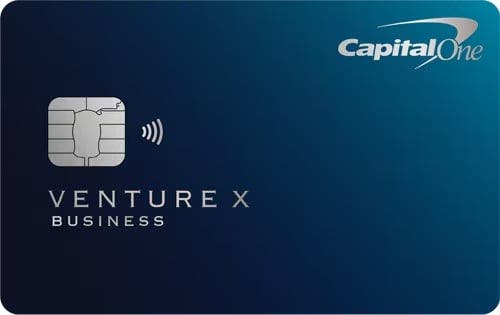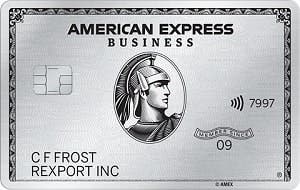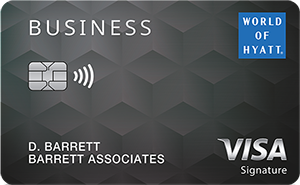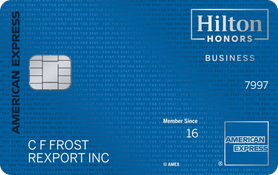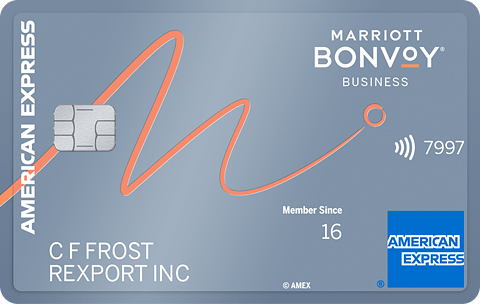- Our top picks for the best business credit cards are the Ink Business Unlimited® Credit Card, Ink Business Cash® Credit Card, and Ink Business Preferred® Credit Card.
- Business credit cards are not only a great way to keep personal and company expenses separate, but the best business credit cards will offer higher rewards and spending limits versus personal credit cards.
- There are two main types of business credit cards – small business credit cards & corporate credit cards. With small-business credit cards, the individual cardholder is responsible for paying the debt, whereas, with corporate credit cards, the responsibility falls on the company.
On This Page
- Key Takeaways
- Our top picks for the best business credit cards
- Compare the best business credit cards
- Best business credit cards of 2024: Editorial reviews
- What is a business credit card?
- Business credit cards vs. personal credit cards
- Types of business credit cards
- Perks of business credit cards
- Choosing the best credit card for your business
- How to apply for a business credit card
- Pros and cons of business credit cards
- Our methodology for selecting the best business credit cards
- Business credit cards FAQ
- Related topics
On This Page
- Key Takeaways
- Our top picks for the best business credit cards
- Compare the best business credit cards
- Best business credit cards of 2024: Editorial reviews
- What is a business credit card?
- Business credit cards vs. personal credit cards
- Types of business credit cards
- Perks of business credit cards
- Choosing the best credit card for your business
- How to apply for a business credit card
- Pros and cons of business credit cards
- Our methodology for selecting the best business credit cards
- Business credit cards FAQ
- Related topics
Best Business Credit Cards of 2024
Our top picks for the best business credit cards
Ink Business Unlimited® Credit Card
Earn unlimited 1.5% cash back on all purchases made for your business.
Ink Business Cash® Credit Card
Earn 5% cash back in select business categories (on up to $25,000 per account anniversary year) and earn 2% cash back at gas stations and restaurants (on up to $25,000 per account anniversary year). Earn 1% cash back on all other purchases.
Ink Business Preferred® Credit Card
Earn 3 points per $1 on the first $150,000 spent in combined purchases in select categories each anniversary year, and earn 1 point per $1 on all other purchases.
Capital One Spark Cash Plus
Earn unlimited 2% cash back on all purchases.
Card Details
More Card Info
- Access free employee cards, which also earn unlimited 2% cash back on all purchases
- Every year you spend $150,000, you can get your annual fee refunded
- You can redeem your cash back for any amount, and rewards won’t expire for the life of the account
- No foreign transaction fees, so you can use your card freely while traveling abroad
Pros
- Generous welcome offer for high spenders
- High 2% cash back rate
- Charge card, so no APR
Cons
- No bonus categories
- Must pay card in full each month
- Has an annual fee
For high-spenders, this business card is a solid option, but if you spend a lot in specific categories, another card may offer more value.
The American Express Blue Business Cash™ Card
Earn 2% cash back on up to $50,000 in combined purchases each year, then 1%. Cash back earned is automatically credited to your statement.
Card Details
More Card Info
- Enjoy a 0% introductory APR on purchases for the first 12 months from account opening. After that, a variable APR of 17.99% - 25.99% applies, based on your creditworthiness and other factors at the time of account opening. APRs will not exceed 29.99%.
- Spend beyond your credit limit* with Expanded Buying Power. (*The amount available for spending above your credit limit varies and is determined by your card usage, payment history, credit profile, known financial resources, and other factors. It is not unlimited.)
- Terms Apply.
Pros
- No annual fee
- High rewards rate
- Simple cash back structure
Cons
- Spending cap for 2% rewards
- Requires good to excellent credit
- Limited redemption options
This is a good option for businesses looking to earn simple cash back rewards, but other cards may provide higher value for big spenders.
Capital One Spark Miles for Business
Earn 5X miles on all hotel, vacation rental and car rental purchases through Capital One Travel and 2X miles on all other purchases.
Card Details
More Card Info
- You can easily transfer the miles you earn to 15+ travel loyalty programs
- Redeem your miles for any travel-related purchases
- Enjoy up to a $120 statement credit for TSA PreCheck® or Global Entry
- Access free employee cards which also earn unlimited 2X miles on purchases
Pros
- High rewards rate
- Free employee cards
- Two complimentary visits each year to Capital One Lounges or Plaza Premium Lounges
Cons
- Has an annual fee after the first year
- High APR
- No intro APR
For business travelers who value simple rewards, this card meets the brief. It also has a low annual fee and a nice welcome offer.
The Blue Business® Plus Credit Card from American Express
Earn 2X Membership Rewards® points on everyday business expenses up to $50,000 per year (then 1X points).
Card Details
More Card Info
- Enjoy a 0% introductory APR on purchases for the first 12 months from account opening. After that, a variable APR of 17.99% - 25.99% applies, based on your creditworthiness and other factors at the time of account opening. APRs will not exceed 29.99%.
- Spend beyond your credit limit* with Expanded Buying Power. (*The amount available for spending above your credit limit varies and is determined by your card usage, payment history, credit profile, known financial resources, and other factors. It is not unlimited.)
- Terms Apply.
Pros
- No annual fee
- High rewards rate
- Earns Membership Rewards points for more flexible redemption options
Cons
- Spending cap for 2X rewards
- Requires good to excellent credit
- Large spending requirement for welcome bonus
This is a good option for businesses looking to earn simple, flexible rewards, but other cards may provide higher value for big spenders.
American Express® Business Gold Card
Earn 4X Membership Rewards® points (up to the first $150,000 in purchases per year, then 1X points) on 2 categories where your business spends the most each billing cycle and 1X points on other eligible purchases.
Card Details
More Card Info
- Earn up to $20 in monthly statement credits when you use the Business Gold Card for eligible U.S. purchases at FedEx, Grubhub, and office supply stores, potentially saving you up to $240 annually. Enrollment required.
- Walmart+ membership credit: Receive up to $12.95 in statement credits each month when you pay for a Walmart+ membership (subject to auto-renewal) with your Business Gold Card. $12.95 plus applicable taxes.
- Customize your Card: Select a Gold or Rose Gold card design.
Pros
- Earns Membership Rewards points for flexible redemption options
- 4X points categories adapt to your spending automatically each billing cycle
- Generous welcome offer
Cons
- High annual fee
- Spending cap of $150,000 annually for 4X rate
- High spending requirement for welcome offer
The automatically adjusting bonus categories give this card tremendous reward potential, but you’ll need to spend a pretty penny to make up for the annual fee.
Capital One Venture X Business
Earn 10X miles on hotel and rental car purchases made through Capital One Travel, 5X miles on airfare and vacation rentals purchased through the portal, and 2X miles per dollar spent on all other purchases.
Card Details
More Card Info
- This card has no preset spending limit, so you get purchasing power that adapts to your spending needs.
- Redeem your miles on flights, hotels and more. Plus, transfer your miles to any of the 15+ travel loyalty programs
- Every year, you’ll get 10,000 bonus miles after your account anniversary date. Plus, receive an annual $300 credit for bookings through Capital One Travel
- Empower your teams to make business purchases while earning rewards on their transactions, with free employee and virtual cards. Plus, automatically sync your transaction data with your accounting software and pay your vendors with ease
- Get up to a $120 statement credit for TSA PreCheck® or Global Entry.
- Enjoy unlimited complimentary access to 1,300+ lounges worldwide, including Priority Pass™ and Capital One Lounges
- This is a pay-in-full card, so your balance is due in full every month
- Elevate your stay at luxury hotels and resorts from the Premier Collection with a $100 experience credit and other premium benefits on every booking
Pros
- Can qualify for hundreds of dollars in credits each year
- Unlimited access to Capital One Lounges
- Global Entry or TSA PreCheck credit
Cons
- High annual fee
- Can’t carry a balance from month to month
- Excellent credit required
Although it comes with a steep price tag, this card boasts plenty of perks to make it worth it for the avid business traveler.
The Business Platinum Card® from American Express
Earn 5 Membership Rewards® points per dollar on flights and prepaid hotels through American Express Travel and 1 point per dollar on other eligible purchases. Earn 1.5 points per dollar on eligible business expenses and purchases of $5,000+ (up to $2 million per calendar year). Purchases eligible for multiple additional point bonuses will only receive the highest eligible bonus.
Card Details
More Card Info
- Access over $1,000 in statement credits on select purchases in your first year with the Business Platinum Card®, including credits for tech, recruiting, and wireless. Enrollment required.
- $200 Airline Fee Credit: Choose a qualifying airline and receive up to $200 in statement credits per calendar year for incidental fees charged by the airline to your Card.
- $199 CLEAR® Plus Credit: Use your Business Platinum Card® to get up to $199 in statement credits annually for your CLEAR® Plus Membership (subject to auto-renewal).
- The American Express Global Lounge Collection® offers complimentary access to over 1,400 airport lounges in 140+ countries, providing more airport lounge options than any other credit card issuer as of 03/2023.
- Terms Apply.
Pros
- Excellent welcome offer
- Easy to earn points
- Great travel benefits
Cons
- No intro APR offer
- Hefty $695 annual fee
- High spending requirement for welcome offer
The annual fee certainly has a shock factor but for the premium business traveler, this card’s luxury perks could make it well worth it.
World of Hyatt Business Credit Card
Earn 4 Bonus Points per $1 spent on qualifying purchases at Hyatt Hotels. Earn 2X points on your top 3 spend categories each quarter (categories are: dining, shipping, airline tickets when purchased directly with the airline, local transit & commuting, social media & search engine advertising, car rental agencies, gas stations and internet, cable & phone services), earn 2X points on fitness club and gym memberships and earn 1X points on all other purchases.
The Hilton Honors American Express Business Card
Earn 12X points on eligible Hilton purchases, 5X points on other eligible purchases on the first 100K spent per year, then 3X points, and 3X points on all other eligible purchases.
Card Details
More Card Info
- Get up to $60 in statement credits each quarter for eligible purchases made directly with Hilton on your Hilton Honors Amex Business Card.
- Receive complimentary Hilton Honors™ Gold Status with your Hilton Honors Business Card and enjoy benefits at hotels and resorts within the Hilton Portfolio. As a Gold member, you’ll earn an 80% bonus on all Base Points for every stay, helping you reach free nights faster.
- Upgrade to Hilton Honors Diamond status through the end of the calendar year if your total eligible purchases on your Card Account reach $40,000 or more within a calendar year.
- Enroll to receive courtesy National Car Rental® Emerald Club Executive® status through the link on your online Amex account. After enrollment, rental car reservations can be made by calling National Car Rental directly, using your travel service, online or through the mobile app.
- Terms apply.
Pros
- Automatic Hilton Gold status
- 10 airport lounge visits each year with Priority Pass (enrollment required)
- Ability to earn a free night with enough spending
Cons
- Can only redeem points at Hilton hotels
- Need good or excellent credit to qualify
- No complimentary free night
This card offers solid Hilton rewards and travel perks for a low annual fee, but no Free Night Award. Instead, it offers 10 free airport lounge visits per year, which is unusual but not unwelcome.
Marriott Bonvoy Business® American Express® Card
Earn 6X points per dollar on eligible purchases at hotels participating in the Marriott Bonvoy® program, 4X points at restaurants worldwide, at U.S. gas stations, on U.S. wireless telephone services purchased directly, and on U.S. shipping purchases, and 2X points on all other eligible purchases.
Card Details
More Card Info
- Enjoy a 7% discount on eligible bookings as a perk of being both a Marriott Bonvoy® member and a Marriott Bonvoy Business® American Express® Card Member. (Must book directly with Marriott through an eligible channel for a participating property under the Amex Business Card Rate.)
- Get a Free Night Award every year after your Card renewal month. Additionally, earn another Free Night Award after spending $60K in purchases on your Card within a calendar year. The award can be redeemed for one night (at a redemption level of 35,000 Marriott Bonvoy® points or fewer) at participating Marriott Bonvoy® hotels. Note that some hotels may charge resort fees.
- Receive Complimentary Marriott Bonvoy Gold Elite Status.
- Terms apply.
Pros
- Earn a free night award annually
- Automatic elite status
- Generous welcome offer
Cons
- Has an annual fee
- Limited redemption options
The valuable benefits of this card can easily outweigh the modest annual fee.
United℠ Business Card
Earn 2X miles per dollar spent on United® purchases, dining (including eligible delivery services), at gas stations, office supply stores, and on local transit and commuting. Earn 1 mile per dollar spent on all other purchases.
Compare the best business credit cards
More business credit cards
These cards barely missed the cut, but we love them nonetheless.
IHG One Rewards Premier Business Credit Card: Best Business Hotel Card for IHG
Delta SkyMiles® Gold Business American Express Card: Best Delta Card for Small Businesses
Delta SkyMiles® Platinum Business American Express Card: Best Delta Card for Semi-Frequent Business Travelers
Delta SkyMiles® Reserve Business American Express Card: Best Premium Delta Business Card
Southwest® Rapid Rewards® Performance Business Credit Card: Best Airline Business Card for Southwest Airlines
Southwest® Rapid Rewards® Premier Business Credit Card: Best Southwest Card for Small Businesses
Ink Business Premier® Credit Card: Best for Cash Back on Large Business Purchases
What is a business credit card?
A business credit card is meant to be used primarily by a business, for business purchases, instead of being for your personal use. This can help keep your business expenses and personal expenses separate.
These cards are available to any business, no matter their size, so they can improve their credit and increase their future borrowing odds. Even freelancers or sole proprietors can apply for a business credit card — as long as you make any type of income.
How do business credit cards work?
Business credit cards generally work similarly to personal credit cards, but they tend to offer cardholders better reward rates and a higher credit limit. Using a business credit card can be helpful when it comes to keeping track of expenses and managing your business finances. These cards come with all sorts of useful features, like tools to help you track spending and monitor employee expenses. Plus, the rewards and benefits are usually customized for businesses, with perks like travel rewards, discounts on business supplies, and more. By using a credit card for your business, you can keep better records, save money, and keep a closer eye on employee spending.
What is a business credit score?
Business credit scores are connected to your business and not to you as an individual. Unlike personal credit scores that use FICO or VantageScore models, business credit scores are rated between 0 and 100 and evaluate factors such as past payment history, credit utilization, business assets, and industry risk. Responsibly using a business credit card is one easy way to start building business credit.
Business credit cards vs. personal credit cards
Having a business or personal card can give you access to credit, but they both operate differently.
Individuals use personal cards for daily purchases of things like gas, groceries, and household necessities.
Business credit cards are only meant for businesses and business spending. If you use this card for personal spending, your account could be flagged and even terminated.
The main differences between the two include:
- Interest rates. Rates can be similar for both cards but highly depend on your credit history, and the type of card can also make a big difference (read more on how credit card interest works).
- Credit limit. Personal cards tend to have lower credit limits than business credit cards. Your credit lender will first consider your personal income, business revenue, and credit score.
- Consumer protection laws. These laws tend to be more stringent for personal cards. If you are late on a payment for your cards, the late fees could be much higher. However, some cards offer protection from these high fees.
- 0% promotional APR terms. These offers tend to have an extended period on personal cards rather than business credit cards.
- Separate lines of credit. While having a poor personal credit score can impact your business credit applications, personal cards won’t build your credit on your business credit card. Using your business credit account impacts your business credit score, but it can also affect your personal score, depending on the lender. This is especially true with cards that require a personal guarantee. Therefore, how you use your business card can affect your personal credit score.
- Reward rates. Reward structures for cards meant for business credit cards are often directed toward business expenses and needs. Some rewards, like travel miles, can be available for business and personal. These cards offer business-specific perks that allow you to track employee spending, manage your account, and more.
Types of business credit cards
Small business credit cards
Anyone who has owned a small business or worked as a freelancer knows how waiting for invoices to be paid can be an endless cycle. A small business credit card can ease your financial burden and invest in business resources that will help your company grow if you cannot pay out of pocket.
Editor’s pick: The Blue Business® Plus Credit Card from American Express
Corporate cards
Unlike small business credit cards, corporate cards are issued to the business entity, not a specific person. These types of cards are often best for large, well-established businesses.
Editor’s pick: Brex Card
Travel reward cards
Similar to personal travel cards, business travel cards offer high-value rewards on eligible travel purchases. They also tend to include other perks like lounge access, travel insurance, and travel-related statement credits.
Editor’s pick: The Business Platinum Card® from American Express or Capital One Venture X Business
Cash-back credit cards
Many of the best cash-back business cards offer rewards for your purchases. These can be incredibly valuable, giving you money to invest back into your business. These cards either offer flat-rate cash back on all purchases, have specific bonus categories, or have a mix of both.
Editor’s pick: Ink Business Cash® Credit Card or Ink Business Unlimited® Credit Card
Co-branded business cards
Some issuers work hand-in-hand with specific brands to give cardholders valuable benefits specific to their company. Hotel credit cards and airline credit cards are two of the more common types, often offering perks like elite status, in-flight discounts, annual free night rewards, etc.
Editor’s pick: The Hilton Honors American Express Business Card or United℠ Business Card
Cards for startup businesses
Some business cards are made specifically for new businesses, offering a convenient way for startups to fund their initial costs. They’re available to any type of business, from freelancers to Etsy sellers to more formally structured businesses.
Editor’s pick: The American Express Blue Business Cash™ Card
Business cards for bad credit
Not too many business credit cards are available to people with poor or fair credit, but there are a few options. Many of these are secured credit cards, or cards requiring a security deposit to open. These can help you build your business credit until you qualify for something better.
Editor’s pick: Brex Card
Perks of business credit cards
Keep your business and personal accounts separate
You can easily track your business and personal expenses when you separate them. When it’s time to pay taxes, you can easily see how much overhead you have and make deductions. Every time you use your card for business, you can lower your taxable income.
Plus, if you ever get audited for any unfortunate reason, your card statements can serve as a backup. Small-business credit cards can help prove that the business you run is not a hobby or a personal matter, plus they can track your spending into different categories to keep your bookkeeping simple.
Have a financial safety net
Any freelancer or small business will tell you that cash flow is a major worry, especially if your client check hasn’t arrived in time to pay off expenses.
Business cards provide a revolving line of credit when you need to make a business expenditure without spending personal money. Just make sure that your business credit card is used solely for business. If you use it for personal spending, your account could be closed or frozen.
Enjoy business-specific perks
Credit cards for businesses tend to have higher credit limits, and many offer an extension to your billing cycle. Some cards offer sign-up bonuses that allow you to rack on points within a certain time frame. Others may offer free employee cards, airline credits, access to airport lounges, and business tracking tools.
Using your small-business card can improve your credit score and lower your interest rates, which is necessary if you are considering applying for a business loan.
You don’t even need employees or an established business structure to be eligible for a business credit card. Today’s gig economy shows more people deciding to work for themselves. You can qualify if you run a business from home or even have a part-time business. While freelancing comes with plenty of risks, there are many rewards, especially if you have a small-business card to help you through lean times.
Business credit cards are a good idea and can help you grow; just remember to use your card wisely and pay on time.
Choosing the best credit card for your business
Choosing the right business card can be instrumental. There are various factors you should consider when choosing a company credit card.
Determine where your business does most of its spending.
If you notice you spend a lot on travel or office supplies, you should find a company card that fits those needs and offers rewards.
Make sure you can afford an annual fee.
Many cards that come with a yearly fee often offer incentives and rewards so you can recoup the cost of the fee with your business purchases. However, if you are a startup or a new business, you may want to consider a no annual fee business card.
Consider the APR
Are you planning on carrying a balance on your card? Look at the APRs on the cards you consider, as any balance you carry will accrue interest. If you plan to carry a balance, your best bet is a card with a very low APR, so you don’t have to spend too much. Alternatively, charge cards don’t allow you to carry a balance, meaning you need to pay off your bill in full each month.
Look at the rewards and perks
If you’re looking for a business card with rewards, pay attention to cash back cards and those with membership reward bonus points. Frequent travelers may want access to airport lounges, growing businesses may want free employee cards, and any business can benefit from business and account management tools.
How to apply for a business credit card
Applying for a business card or corporate credit card is similar to a personal card application. As a business owner, you can apply with an EIN (employer identification number) or your Social Security number. Lenders will base their decisions on your established credit history, your business’ revenue, financial backing, and more.
Here are some important tips on how to apply for a business card:
-
Know your personal credit score.
No matter the type of business you own, the lender will pull a hard credit check on your personal credit report. The business card will be separate from your personal credit and will not impact your personal credit. -
Look at your business credit score.
Personal credit ranges from 300 to 850, but business credit scores are on a scale from 0 to 100, with 0 meaning no credit or bad credit. This score is public so that you can access your score through business credit reporting agencies. -
Get your documents together for the application process.
If you are a freelancer or sole proprietor, you just need to provide the same information as you would for a personal card application. If you are the owner of a corporation or an LLC, you may need to provide business-specific items like a tax identification number, business name, business phone number and address, business income, and a personal guarantee. -
Apply for your new business card.
Once you have all your information, go ahead and apply online for the best credit card that fits your needs.
Pros and cons of business credit cards
- Business cards allow you to separate personal and business finances.
- Business cards regularly have higher credit limits than personal cards.
- Business cards help build and improve business credit scores.
- Business cards may make it far too easy to accumulate debt.
- Business credit cards may demand membership or other fees.
Our methodology for selecting the best business credit cards
A great business card is subjective and hinges on your business needs, type of business, and business spending. As with personal credit cards, not all are created equal.
The characteristics that we keep in mind when selecting the best business cards involve:
• • • • •
For rates and fees of The American Express Blue Business Cash™ Card, please visit this page.
For rates and fees of The Blue Business® Plus Credit Card from American Express, please visit this page.
For rates and fees of the American Express® Business Gold Card, please visit this page.
For rates and fees of The Business Platinum Card® from American Express, please visit this page.
For rates and fees of The Hilton Honors American Express Business Card, please visit this page.
For rates and fees of the Marriott Bonvoy Business® American Express® Card, please visit this page.
Business credit cards FAQ
What is the best small business credit card?
The best small business credit card depends on your particular needs and wants from a credit card. Our favorite credit cards for small businesses are The American Express Blue Business Cash™ Card and the Ink Business Unlimited® Credit Card.
Which business credit cards pay the most cash back?
The Discover it® Business Card offers unlimited 1.5% cash back on all purchases. Combined with Discover’s welcome offer of an automatic unlimited dollar-for-dollar match of all the cash back you earn at the end of your first year, you could see your investments pay off.
The Ink Business Cash® Credit Card offers 5% cash back on the first $25,000 each anniversary year if you spend on internet, cable, phone services, and office supplies. It’s also a good option as a business gas credit card as you earn 2% cash back on the first $25,000 you spend at restaurants and gas stations and 1% elsewhere. You earn $750 in cash back after spending $7,500 in the first three months of opening your account.
Do all business credit cards require a personal guarantee?
Many business credit cards require a personal guarantee, meaning that if you have any outstanding debt on your business credit card, your creditors can recoup it, which can be risky.
If you’re wondering if you can apply for a card without a personal guarantee, it’s possible — but your options may be more limited. Plus, they will require alternate forms of eligibility.
Creditors ask for a personal guarantee because many fledgling businesses don’t already have a long history of credit, which can make it harder to determine their creditworthiness when extending tens of thousands of dollars. Therefore, a personal commitment from the business owner to not renege on outstanding debts is requested.
It is rare for a small business to be eligible for a card with no personal guarantees since the risk that the business will not be able to pay off its debts can be high. Lenders may pass you over if your personal finances cannot cover the potential debt.
On the other hand, large businesses rarely need a personal guarantee since they have cash reserves and revenue to guarantee debt repayment.
Do I have to own a business to apply for a business credit card?
Business cards can provide rewards programs and perks that may not come with a personal credit card, like enticing welcome offers and specialized category bonuses. However, if you are a sole proprietor or freelancer, you could be eligible.
In many cases, it is necessary to own a business to be approved for a card. Still, if you earn money independently, you are eligible — even if you don’t own a traditional business.
In fact, any type of entrepreneurship can qualify, including:
- Independent dog walkers
- Freelance writers
- Virtual assistants
- E-commerce
- Tutors
- Consultants
- Food delivery
- Selling anything online
- Website designers
- Social media managers
- Entertainers
- Photographers
Even if it’s a side-gig, you may qualify for a business-related card as long as you earn money.
This is a great way for you to keep your personal and business expenses separate, and you could gain extra spending power to help your business grow, no matter how small.
In short, yes, you need a business to get a business credit card. However, the term “business” can be a little loose. If you sell a product or a service, you qualify as a business owner.
Plus, you don’t need to have a registered business — you can use your own Social Security number instead of a business tax identification number when asked for a tax ID number on the application.
Many business credit cards could fit your needs, depending on your type of business, spending, traveling habits, and more.
Will a business credit card affect my personal credit score?
When you apply for a business credit card, your credit takes a hard dip, but once your card has been issued, your business and personal credit accounts are kept separate, unless you default on your payments.
In general, it’s always to keep your business and personal finances.
Many credit card issuers will ask you to sign a personal guarantee for your business. You can be held personally responsible for repaying your debt if your business defaults on payments.
Your credit activity could be reported to the three major credit bureaus (Experian, Equifax, and TransUnion), depending on your issuer. You should keep an eye out for your credit utilization ratio, which means that if you have a high balance on your card, your personal credit could be impacted.
We recommend keeping your credit utilization below 30% of the credit limit, which tends to be much higher for business credit cards.
If you need to make a large purchase for your business, you might be better off applying for a business loan than putting a red flag on your card.
If you stop making payments for more than 30 days, your credit card issuers will report delinquency to the credit bureaus. This can negatively impact your personal credit and can stay on your credit report for up to seven years.
Because payment history is one of the first things lenders look at, it could be difficult to borrow money in the future.
A late payment could mean a penalty APR, which can get quite high and make it even more difficult to keep up with your payments.
Since not all credit issuers report your activity to consumer credit bureaus, it may be good to call before applying to find out their policy and how the card issuer reports. You could save yourself unwelcome surprises and potential negative implications before applying for a business credit card.
If you’re worried about a card for your business having a potential impact on your personal credit, just make sure to pay your card every month. Also, try to keep your balance low and not hit your credit limit if you can avoid it and make sure you only spend your card when you need it.
A business credit card could be a great financial investment in your small business and help you grow, but you should know how it can affect you personally.
Which business credit cards are best for travel?
Although there is not a one size fits all business card for travel, there are a number of travel credit cards that provide fantastic rewards. The Southwest® Rapid Rewards® Performance Business Credit Card is ideal for domestic travel, offering early bird check-ins and in-flight purchase discounts. The Capital One Spark Miles for Business card is also a great option, offering 2x miles on all purchases with no limits and complimentary visits to Capital One Lounges or Plaza Premium Lounges.
Related topics
* Opinions expressed here are those of the LA Times Compare Cards Team and have not been reviewed or approved by any advertiser or entities included within this content. See our editorial policy for more details.
All products or services are presented in this content without warranty. The information, including card details such as rates and fees, is accurate at the time of publish. Please visit each bank's website directly for the most current information.


